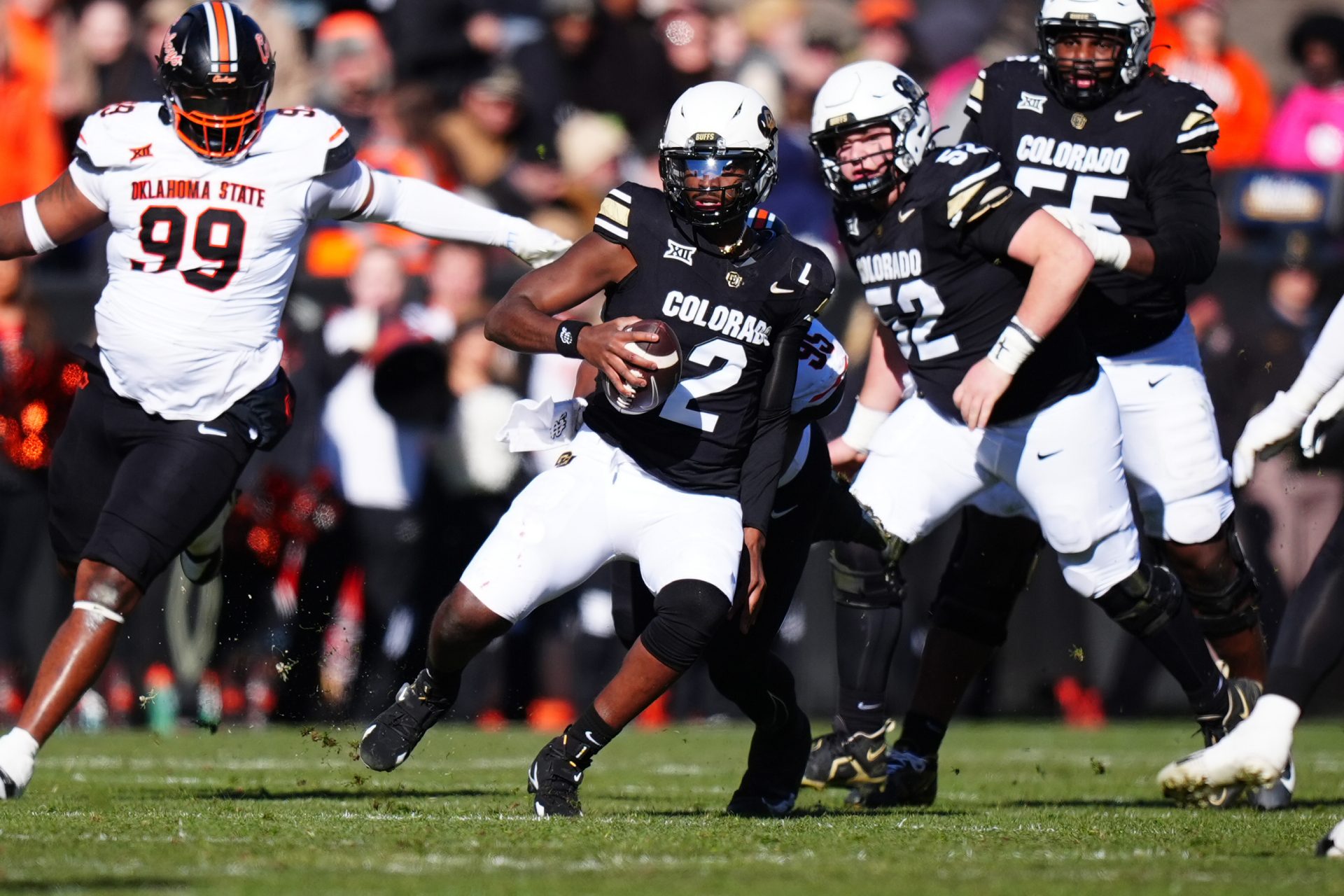What could have been a Big 12 Championship Game will instead take center stage in the Alamo Bowl, as No. 17 BYU faces off against No. 23 Colorado in a rare non-CFP postseason clash between two teams from the same conference.
The 2023 near-collapse of the Pac-12 left its former members with bowl affiliations that stretch through 2026, allowing Colorado to represent the conference as a “legacy” school while BYU steps in for the Big 12.
So, who takes home the win? Our BYU vs. Colorado prediction dives into everything you need to know—from the latest betting lines to what’s at stake for both programs in this Valero Alamo Bowl showdown.

BYU vs. Colorado Alamo Bowl Betting Preview
All BYU vs. Colorado odds are from DraftKings Sportsbook and are correct as of Saturday, Dec. 28, 2024. The CFN spread comes from College Football Network’s Football Playoff Meter.
- CFN FPM Spread
Colorado -1.5 - Spread
Colorado -2.5 - Moneyline
Colorado -148, BYU +124 - Over/Under
54 points - Game Time
7:30 p.m. ET, Saturday, Dec. 28 - Location
Alamodome | San Antonio - Predicted Weather at Kick
TBD - How To Watch
ABC
These are on opposite sides of the against-the-spread spectrum. BYU is 1-5 ATS in its last six games, while Colorado is 9-1 ATS in its last 10.
However, the Cougars are 6-1 ATS in their previous seven contests as underdogs, which should keep the Buffs on their toes.
MORE: CFN Betting Parlay Calculator
As far as the total, BYU bouts have gone over in seven of the past eight, including four of the past five against Big 12 opponents.
Alternatively, Colorado matchups have struggled with 50+ point totals, going over once, under three times, and pushing once in the last five.
BYU’s Winning Probability
In just their second year as Big 12 members, the Cougars found their groove, finishing with a 10-2 record—marking the third double-digit win season under head coach Kalani Sitake. While they would have preferred a shot at the conference title, the Alamo Bowl is a solid consolation for a strong campaign.
- at Colorado: 48.2%
Colorado’s Winning Probability
Say what you will about Coach Prime—Deion Sanders gets results. Taking over a 1-11 Colorado program, Sanders led the Buffs to 4-8 in his first year and 9-3 this season, all while navigating the challenges of a new conference.
Colorado hasn’t won a bowl game since 2004, so expect Sanders and his squad to leave it all on the field. That includes star QB Shedeur Sanders and Heisman-winning WR/CB Travis Hunter.
- vs. BYU: 51.8%
Prediction for BYU vs. Colorado
Colorado’s high-octane offense has been one of the most explosive in the country, averaging 34.5 points per game. Shedeur Sanders has orchestrated a lethal passing attack, throwing for 327.2 yards per game and 35 touchdowns. BYU’s defense will have its hands full, but they’ve shown they’re more than capable of meeting the challenge.
The Cougars boast the Big 12’s best defense, allowing just 20.08 points per game while keeping both passing and rushing yards under 200 per contest. Their offense, meanwhile, isn’t far behind—ranking sixth in the conference with 30.75 points per game and 38 total touchdowns.
MORE: 2024 College Football Bowl Game Opt-Out Tracker
While Colorado’s defense allows just 22 points per game, their susceptibility to explosive plays creates opportunities for BYU. The Cougars can exploit gaps both on the ground and through the air, particularly against a Buffs defense reliant on containing screens and RPOs rather than locking down deep threats.
Fortunately for fans, neither program has been hit hard by the transfer portal, so we should see both teams at nearly full strength. Expect Sanders, Hunter, and Colorado’s loaded receiving corps—including LaJohntay Wester, Will Sheppard, Jimmy Horn Jr., and Drelon Miller—to put on a show one more time this season.
This game promises to be a clash of Colorado’s explosive offense against BYU’s disciplined defense, with both teams eager to cap off their seasons in style.
Prediction: Colorado 31, BYU 28
College Football Network has you covered with the latest from the ACC, Big Ten, Big 12, SEC, and every Group of Five conference and FBS Independent program.

